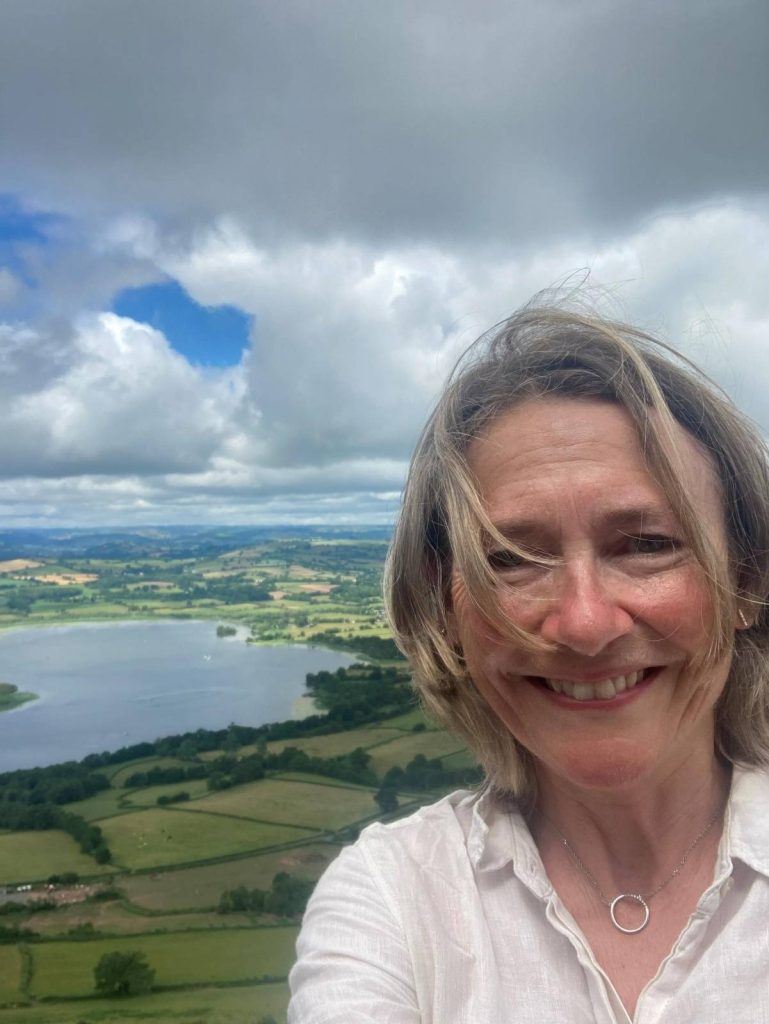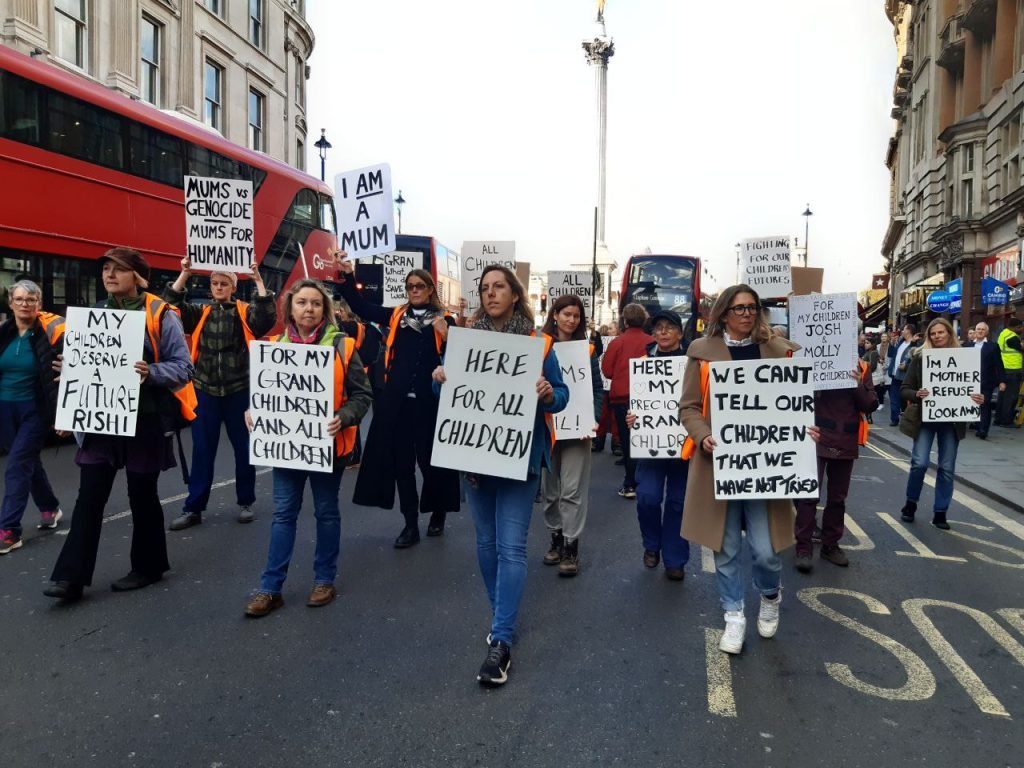Taking Action with Just Stop Oil Mum’s March by Gill Tavener
I knew, without a doubt, that this was going to be one of the stranger days of my life. Sitting in the Woman’s Hour studio at the BBC’s Broadcasting House, the only thing between me and Emma Barnett’s alabaster face was a huge red microphone, about the size of the heart thumping in my chest. It was one of those moments when you ask yourself, ‘How on earth did I get here?’
Three days earlier, I’d been agonising over a Mums’ March, as part of Just Stop Oil’s November actions. What would be the point, of dozens of brave mums, grandmothers and even a great grandmother accepting arrest as a consequence of slow marching, if nobody knew about it? That same day, serendipity led to a discussion with the producer of Woman’s Hour and a booking for two Marching Mums to feature on their 6th November broadcast; the morning of our march.
The interview was scary but fine. Unpolished, we spoke from the heart about our fears for our children’s futures and our fears of our first arrests. As we left the studio, the producer said, ‘You’ve given us a problem’. She explained that BBC ‘balance’ demands that Emma should read an equal number of negative and positive comments from listeners at the end of the feature. Their problem? They had been inundated with support for us and couldn’t find a single negative comment. A good result, we felt. As we left the studio, staff applauded and wished us luck. That night, after release from a police cell, I found a message on my phone: listeners had been contacting the programme, asking how we’d got on and whether we had been arrested.
While we were on air, the other Marching Mums, gathered in a room on the other side of London, listened to the broadcast. When we walked in to join them, we were greeted by cheers. What a powerful group we were that day; united by love for our children, for all the world’s children, and empowered by the knowledge that together, we were going to take meaningful action. Friendships form swiftly when purpose and power are shared. At that moment, there was nowhere better to be.
Slow marching with Just Stop Oil is always an amazing experience. The bonds of love and trust within a group form a defensive shield against the noise around us, and support from passers-by lifts us. A mothers’ march is all of this multiplied by 10. Instead of orange banners, each of us carried a placard. We wanted to challenge the media’s ignorant stereotyping of Just Stop Oil marchers; to shake things up.
For many of us, this would be our first arrest. The police arrived soon after we left Trafalgar Square, but there weren’t enough of them to arrest us all; ’You’ve given us a problem’, said one officer. Those of us still free continued to march. To have left the road simply because they asked us to do so would have equated to saying ‘Oh, we’re so sorry we dared to speak out for our chidren’s future; we’re so sorry we had the audacity to oppose fossil-fuelled greed with maternal love; we’re so sorry we tried to be heard’. So, no – we couldn’t and wouldn’t leave the road until forced to do so. On the whole, our experiences of the Met Police were positive. You have ample opportunity for conversation during the extended processes of arrest and custody. Most of us reported later that police voiced support for our aims, if not always for our methods. Not all protesters are treated so well, but police really don’t want to be arresting us. Just Stop Oil has indeed given them a problem.
I have two very clear memories of that afternoon. The first is lying on Whitehall’s pavement awaiting police transport. Staring at the small clouds in the vast blue sky, I thought about the world and its beauty, about how there was so much to fight for, and about how bizarre it was that I and over twenty other mothers should be lying in the middle of London, arrested for asking our government to stop threatening our children’s survival. Right there, right then, I felt I was where I needed to be. The second memory is sitting alone in my cell, quietly contemplating the secure metal door with its letter-box slit through which officers occasionally talked to me or gave me food. Right here, right now, I thought, I am my authentic self, acting in accordance with my moral, intellectual and visceral understanding of the world’s realities; my actions that day had been entirely consistent with my values and beliefs. How strange to feel so liberated in a locked cell.
The return to ‘normal’ life is awkward. Friends want to know and don’t want to know. A chasm has opened between me and some of them, while a bond is growing with others. It’s hard to sink back into the opiating busy-ness of daily life. During my action-week, adrenaline, shared purpose and mutual loving care created an intense, concentrated enjoyment. Back home, the horrific realities of the climate catastrophe have crowded in again, and court notices in the post remind me of the potential legal consequences of my actions, but I have no regrets. I feel, more intensely than ever, deep gratitude for Just Stop Oil’s ongoing legal and emotional support and the iron-strong friendships forged in the furnace of action.
Many have been and are still being braver than me and have their own stories to tell. Many others find non-arrestable roles of great value within the movement. If you’re thinking of stepping forward, there are many ways to do so. Sign up at www.juststopoil.org and we’ll be in touch to discuss what you’d like to do. There’s a place for everyone; there is definitely a place for you.


